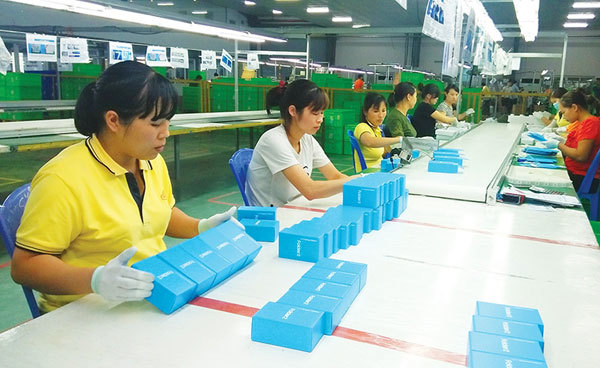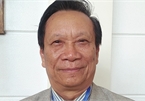choosing the right location to invest in.
 |
| South Korea has so far been the second-largest foreign investor in Vietnam in 2020. |
South Korean investors are currently aiming to increase their presence in other regions of Vietnam than those previously favoured. According to Kim Kyung Hwan, general director of Hyosung Quang Nam Co., Ltd., there are many advantages in the central province of Quang Nam as local authorities operate effectively and the local infrastructure with National Highway 1A and the coastal roads and highways has contributed to reducing transportation costs and improving the competitiveness of businesses.
In the first 11 months of 2020, 109 countries and territories were investing in Vietnam, with South Korea ranking second with the registered sum of $3.7 billion, accounting for 14 per cent of the country’s total foreign direct investment (FDI). With the 573 new projects, South Korea ranked first, according to the latest report of the Foreign Investment Agency (FIA) under the Ministry of Planning and Investment.
Geographically, South Korean investment is most concentrated in the northern province of Bac Ninh with $10.12 billion, accounting for 16.2 per cent of this partner’s total registered amount, followed by Thai Nguyen with $7.28 billion (11.6 per cent), and Haiphong with $6.82 billion (10.9 per cent).
The Central Highlands are becoming a reliable and safe investment destination for South Korean investors as the region has been the leading partner in the first nine months of the year in terms of total capital with over $79 million in 23 newly-registered projects in various fields, such as processing, manufacturing, and services.
Lee Sung Nyung, director of the Korea Trade-Investment Promotion Agency in Danang, commented that land prices in the Central Highlands are one of the most enticing factors as they are much lower than elsewhere in the country.
Enticing close partners
With its agility, Vinh Phuc has made many other provinces of Vietnam lag when it comes to attracting high-quality FDI. This is not surprising given that the local government has used its advanced infrastructure, consolidated air transport, and intercity connectivity to attract new capital from South Korea. Vinh Phuc also wants to focus on high-tech projects, like the Vinh Phuc ICD Logistics Centre in Binh Xuyen with an investment amount of $167 million.
Pham Quang Thang, deputy director of Vinh Phuc Department of Planning and Investment, emphasised that the factors ensuring the province’s competitiveness in attracting capital to the northern province lie in supporting businesses by reducing trade costs, increasing stability, and contributing to the local economic growth.
While directly meeting with 25 South Korean investors and representatives of 13 industrial zones in Vietnam last week, Hoang Minh Chien, deputy director of the Department of Trade Promotion (Vietrade) under the Ministry of Industry and Trade, said such meetings are an “invaluable opportunity for South Korean businesspeople to choose suitable investment locations,” which Vietrade tries to carry out regularly despite the interference of the pandemic.
Chien also emphasised the need to connect and attract investment from South Korea to enhance the competitiveness of domestic goods and businesses. Currently, there are about 8,900 businesses from this market active in Vietnam, representing an important component of the Vietnamese economy by employing over one million people and contributing about 25 per cent to the country’s total export value.
“The South Korean government is determined to prioritise Vietnam as a vital partner in its New Southern Policy,” Chien pointed out, adding that this is one of the reasons that not only large corporations are gradually building strategic supply chains in Vietnam, but now also small- and medium-sized ones.
Laying the foundation
Hong Sun, vice chairman of the Korea Chamber of Business in Vietnam commented that the new capital inflow of South Korean investors is showing companionship for long-term development. However, should Vietnam try to reduce incentives for FDI, such as by imposing an additional tax, foreign investors’ interest could be dampened.
“Vietnam needs to come up with new policies,” Sun said in the context that the country is competing with other regional nations. “In addition to tax incentives, Vietnam needs special mechanisms for large investors in new areas that may be needed for the economy in the future.”
At the 18th Vietnam-Korea Intergovernmental Panel on Economic and Scientific Cooperation, the Vietnamese Ministry of Planning and Investment and the South Korean Ministry of Foreign Affairs agreed that, along with recovering from the damage the pandemic has been causing, there is a need for supportive policies and solutions to facilitate business and investments from both countries.
Accordingly, the Vietnamese side pledged to support and create preferential conditions for its partner’s companies to invest in new and expanded production and business activities. Meanwhile, its counterpart has proposed to encourage large corporations to invest in Vietnam, should the Vietnamese authorities continue to solve difficulties and problems faced by them.
South Korea intends to move its funds away from other countries and make use of it in research activities in Vietnam, especially in electronics, high technology, renewable energy, and industrial infrastructure.
At the panel, the two sides also agreed to continue facilitating the entry for South Korean experts to ensure restoring production and business activities and pandemic prevention.
However, South Korean investment in Vietnam still depends heavily on the anti-pandemic work of its government. Should Vietnam continue to reform its business environment and the pandemic become finally under control, it is only a matter of time before Vietnam can welcome new cash injections from its partner.
In order not to miss such opportunity and create the most favourable conditions for investors, Vu Van Chung, FIA deputy director general, said that localities should continue to strongly reform their business environment and proactively remove difficulties for foreign businesses.
Chung also recommended localities to build criteria for investment projects following Resolution No.50-NQ/TW, and improve the quality of investment promotion in an active and focused direction, giving priority to attracting those projects ensure regional connectivity and make the best out of each locality. VIR
|
Baek Ho Sik - Boiler factory director, Doosan Vina Doosan Heavy Industries Vietnam is focusing on manufacturing clean energy and renewable energy equipment in Vietnam, and Doosan Vina will export clean and renewable energy equipment to world-demanding markets. The Sodegaura biomass power project was signed with Chiyoda Corporation (Japan) in 2018 regarding the supply of boiler pressure, non-pressure parts, and steel structures for the plant using circulating fluidised bed (CFB) technology and located in Chiba, Japan. A total of 4,000 tonnes of the project includes 1,500 tonnes of boiler structural components such as pressure part coils, panels, headers, piping, link, and tanks. Once in operation, this equipment will help generate high-pressure steam which rotates turbines to produce electricity. The remainder consists of structural steel, ducts, and bed material bins which are responsible for supporting the boiler pressure part, conducting gas, and storing biomass fuel. Up to now, Doosan Vina has delivered a total of just over 3,000 tonnes to Chiyoda customers and is expected to complete the order in February 2021. The company is a high-tech industrial complex in Dung Quat Economic Zone of Central Vietnam’s Quang Ngai Province employing 2,000 Vietnamese, supplying mega infrastructure products that make modern life a reality. In addition to the CFB technology, we are also producing waste-to-energy boilers to supply for power plants near Kyoto in Japan. This equipment is expected to be shipped next year. Han Kyung Joon - Deputy Director, Korea Trade Investment Promotion Agency Vietnam is home to about 6,000 South Korean companies mainly focusing on electric devices and garments. Moreover, other kinds of goods such as coffee and seafood are also Vietnam’s strong suit and have stimulated exporting to South Korea. To take better advantage of the Vietnam-Korea Free Trade Agreement, both governments and also companies should actively learn more information about the agreement to grasp the investment opportunities. Vietnamese businesses could be able to ask our Hanoi free trade agreement centre for support. The establishment was formed in order to aid the two nations’ companies to benefit from the agreement and solve any breakdowns at the same time. Moreover, the centre also provides updated information to businesses regarding the markets and also the two sides’ policies. Kim Tae Hee - Head of Capital Markets and Trading, Shinhan Bank Vietnam has great geographic advantages and similarities in culture with South Korea, together with a young, tech-affine population, and a very active and open economy. Last month the Regional Comprehensive Economic Partnership, now the world’s biggest trading bloc, was signed by 15 countries, including South Korea and Vietnam. The South Korean government is showing its intention to encourage and create favourable conditions for companies to invest in Vietnam in numerous sectors, including petrochemicals, renewable energy, and the environment. I hold a firm belief that Vietnam will see stronger growth momentum thanks to the country’s effective preventive measures against COVID-19, strong export demand, and domestic consumption. To attract high-quality foreign investment, the Vietnamese government should operate flexibly and open up the capital market. Shinhan Bank has officially completed all three pillars for Basel II standards ahead of the schedule set by the State Bank of Vietnam. The early adoption of Basel II reaffirms the capabilities, potential, and special attention Shinhan Bank pays to risk management, as well as our strong commitment to Vietnam.
|
Van Nguyen

Vietnam, South Korea take steps to enhance energy cooperation
The cooperation between leading power developers is expected to make the energy-centered bilateral trade target achievable.

Vietnam to see enhanced high-quality investment flows after successful VKFTA
Vietnam and South Korea are witnessing their heyday in multi-faceted and bilateral co-operation.